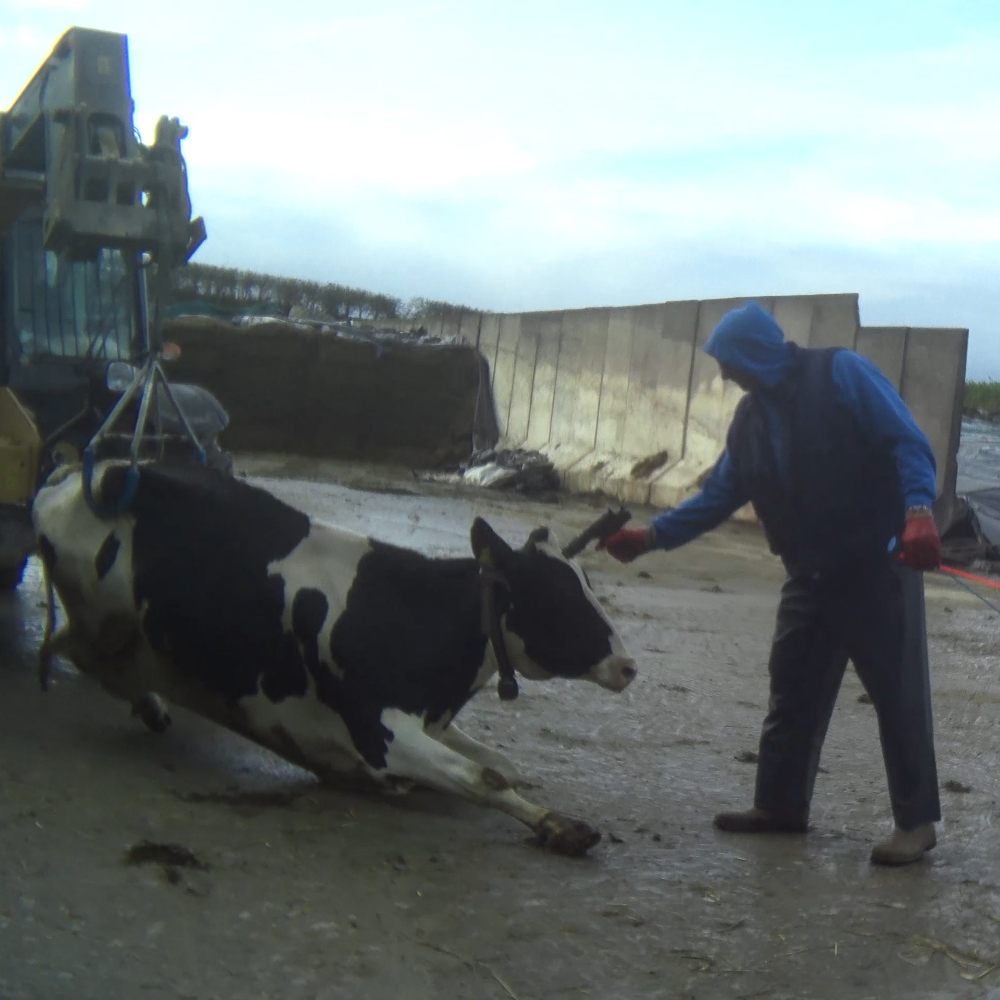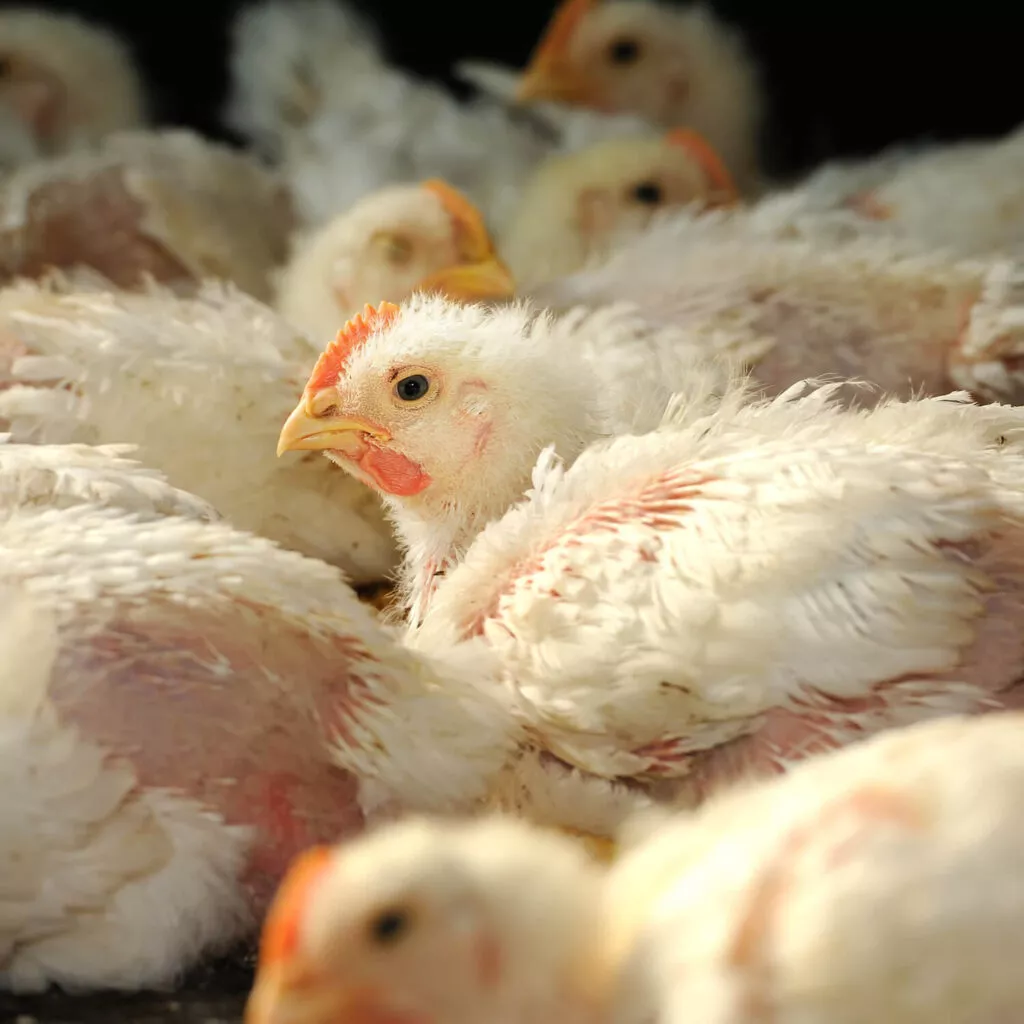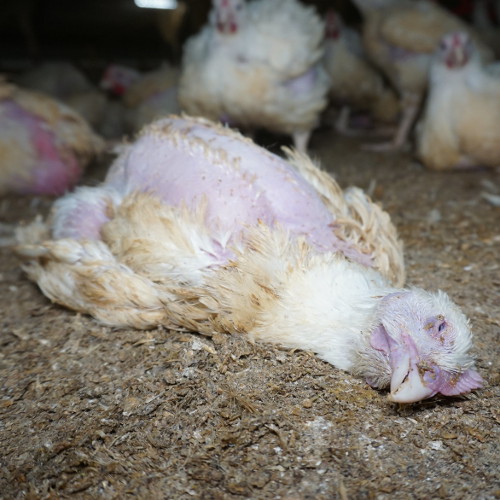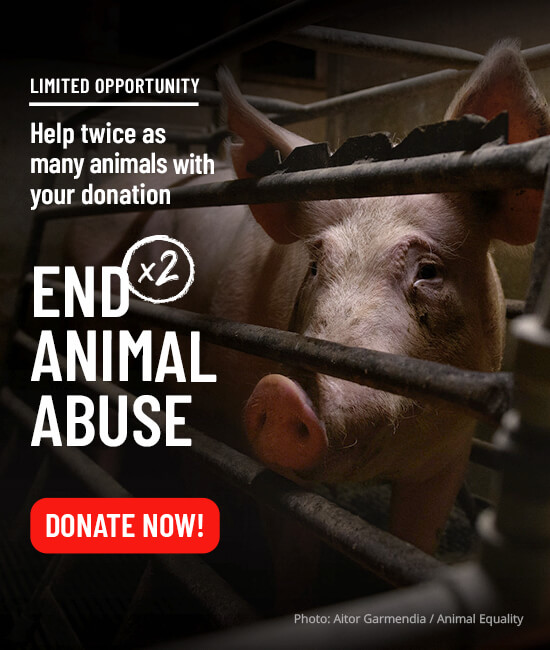8 Farming practices you’d think are illegal, but are not in the UK
When you witness the horror that really happens behind closed doors and slaughterhouses to farm animals all over the world, it’s impossible not to be affected by it and to realise that we have to do something drastic to stop it.
Joaquin Phoenix, actor and activist
Because of the space they require, farms and slaughterhouses are usually built far from inhabited areas. They also have no windows and no architectural clues of what happens inside.
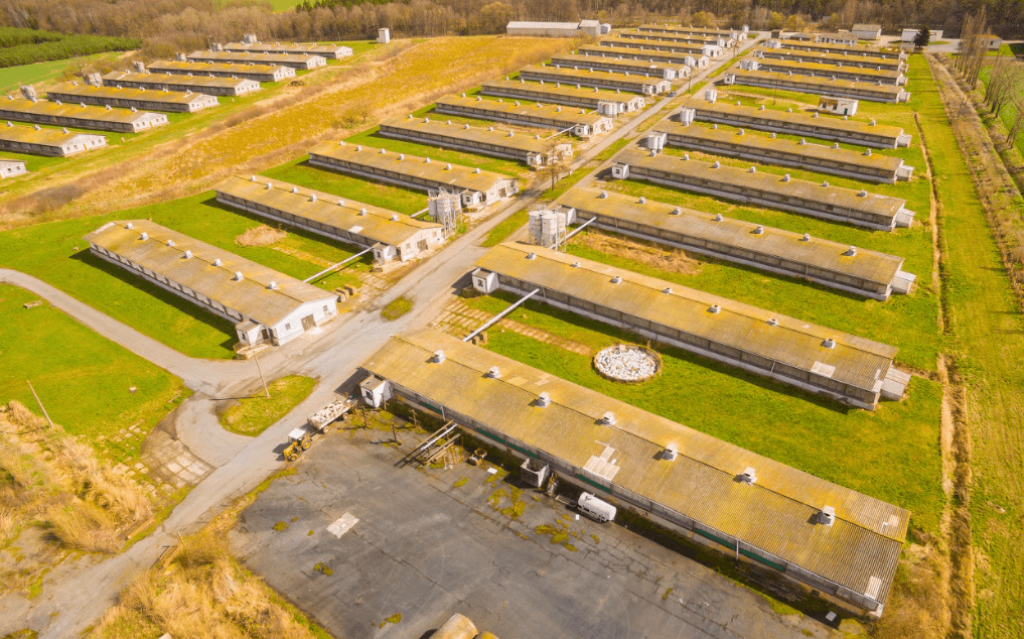
Few people really know what happens to animals in these places, which is why the work of our brave investigators is so important.
Disarmed by the cruelty they witness, people watching our investigations often think that everything we are documenting is illegal.
However, many of the abuses that our investigations bring to light, are in reality legal practices.
The animal agriculture industry is well aware that society would not accept such cruelty and therefore invests millions in marketing campaigns that show animals happily roaming in the grass. Nothing could be further from the truth.
These are some of the standard practices that farmed animals are forced to endure every day, because it’s defined as acceptable by the law:
- Artificial insemination
- Farrowing crates
- Premature separation of mothers and babies
- Painful mutilations
- Unnatural growth
- Overcrowded cages
- The slaughter process: from gas stunning, to electric water-baths, to the slaughter of pregnant cows
- Animals killed right after birth
Artificial insemination
Artificial insemination is the process of collecting sperm cells from a male animal and manually depositing them into the reproductive organ of a female. The farmed animals subject to this practice are cows, female pigs (also known as sows), sheep and turkeys.
The process requires farmers to insert a catheter inside the animal. In the case of sows particularly, catheters inserted in the wrong way might enter the bladder and cause infections.
Female animals used for breeding are forced to undergo this distressing process over and over for years, often developing infections in their vulvas as a result of repeated pregnancies.
Farrowing crates
About one week before giving birth, sows are forced into farrowing crates, where they will remain throughout their piglets’ births and while nursing them.
In these tiny crates, a mother pig is unable to move or turn around, let alone properly take care of her babies. Due to extremely limited space, often a mother can accidentally crush her babies with her weight. Given the strong bond that mother pigs form with their babies, farrowing crates cause them great psychological distress.
Additionally, because pigs are barely able to move inside these tiny crates, they are forced to stand and lay in their own excrement, which can cause them to develop severe infections that most of the time will be left untreated.
Our investigation into a ‘quality assured’ pig farm, revealed alarming footage of mother pigs with extremely severe infections left untreated.
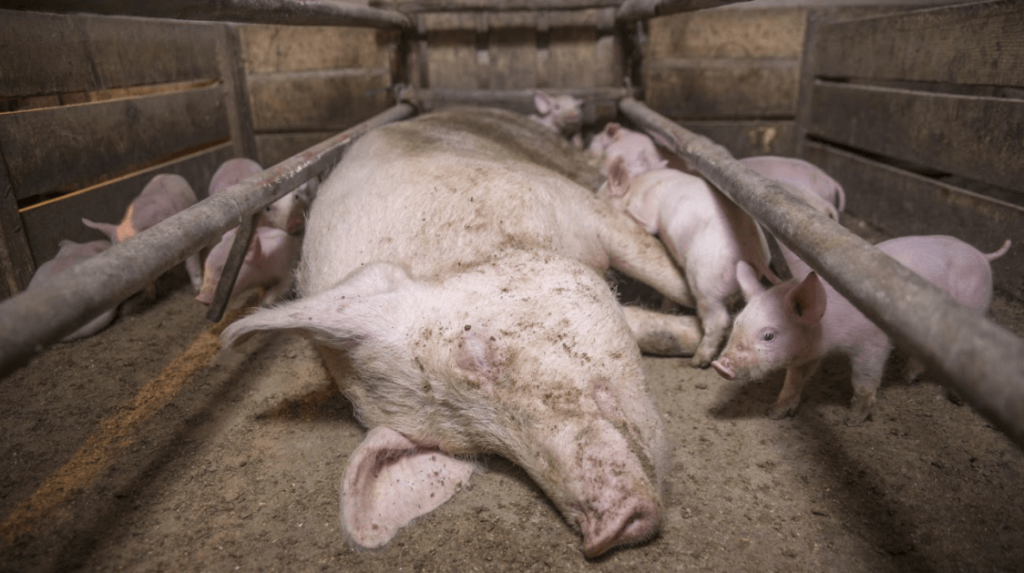
Premature separation of mothers and babies
Whether it is for meat or dairy production, mothers and babies in factory farms are separated shortly after birth.
Just like us, cows only produce milk for their babies. In order for the industry to take her milk, a cow’s baby is often taken away from her after only 24 hours, causing them both great psychological distress. After being torn away from her mother, the calf will be raised elsewhere. The milk that the mother produces for her baby is destined for human consumption.
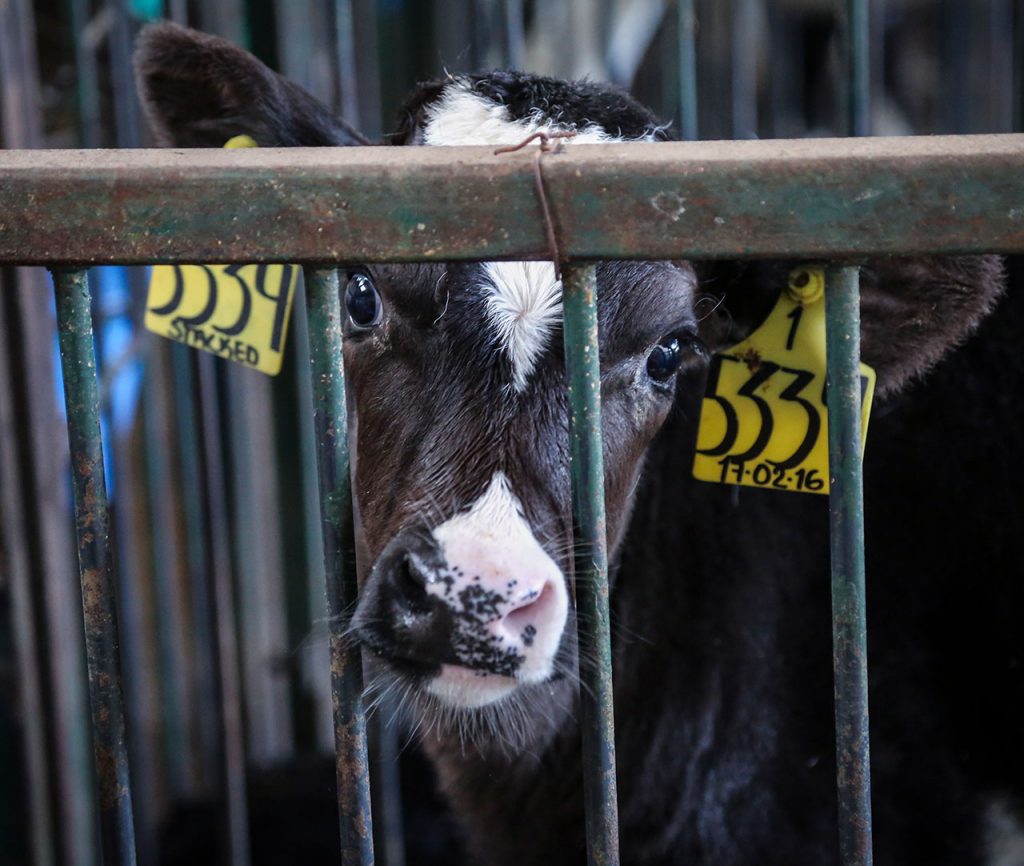
Cows used for dairy go through this process for their entire lives, until they are unable to produce enough milk for the industry, and they are sent to slaughter.
In the wild a mother pig nurses her piglets until they are between 10 and 17 weeks old. On factory farms, piglets are separated from their mother when they are only around three weeks old. This separation is highly distressing for both mother pigs and their piglets, who can be heard crying out for each other.
Separating mothers from their babies is not only painful but also unnatural. It strips away the animals’ freedom to express their natural behaviours and develop bonds with their families.
Painful mutilations
Tail docking is the removal of part of the pig’s tail in order to reduce the risk of tail biting in older pigs. Tail biting is often a consequence of the psychological and physical distress pigs are subjected to in factory farms due to overcrowded sheds and limited space available.
Tail docking should only be done as a last resort, in case of evidence of injuries to other pigs’ tails and after looking at ways to reduce aggression such as separating pigs or reducing stocking densities. However, as many of our investigations have revealed, this is not often the case as some farmers routinely cut piglets’ tails without assessing the situation and without giving them any pain relief.
Teeth clipping is the removal or grinding of the sharp ends of a piglet’s needle teeth to reduce damage to both the sow’s teats during suckling and to other piglets.
Same as tail docking, teeth clipping should only be performed as a last resort only after steps to improve the pig’s environment have been taken, but there’s evidence that biting is still happening. However, in many of our investigations inside British farms we reported farmers routinely clipping piglets’ teeth without giving them any pain relief. Additionally, many piglets develop infections in their gums due to the procedure being carried out without the proper care.
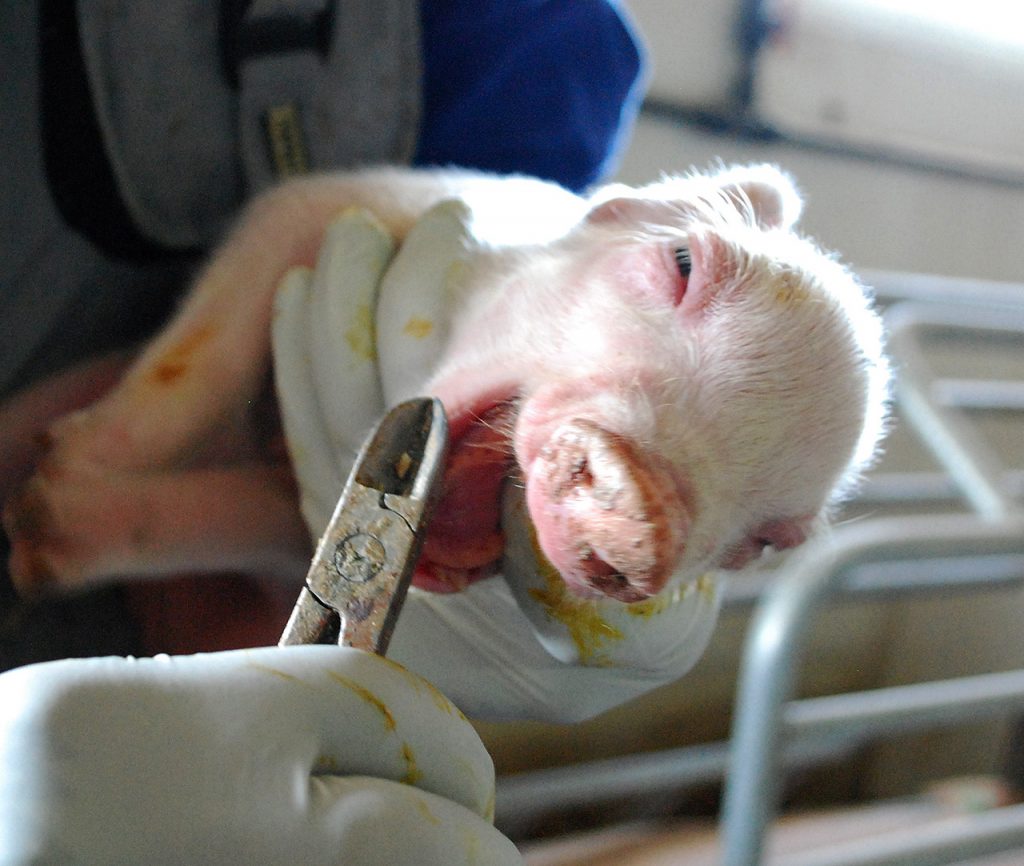
Castration is carried out on some pigs and calves.
In calves, castration is carried out to make the animals easier to handle and to avoid accidental mating. According to the Farm Animal Welfare Council, ‘calf castration is an undesirable mutilation which should be avoided if at all possible. It should only be carried out to avoid worse welfare problems.’
Unnatural growth
Factory farming requires fast-growing animals to maximise production. To achieve this, animals are selectively bred to grow unnaturally fast, causing them to develop physiological problems. Lameness, weakened or broken bones, infections and organ failure are common health problems for factory farmed animals.
To keep them alive long enough to be slaughtered, diseased and injured animals may be given antibiotics.
Chickens are the most abused land animals on the planet, with 90% of all chickens slaughtered and sold to supermarkets in the UK belonging to a ‘fast-growing breed’. Due to their speed of growth, they experience a wide range of health issues including lameness, hip dislocations, heart attacks and burns from laying in their own urine and faeces.
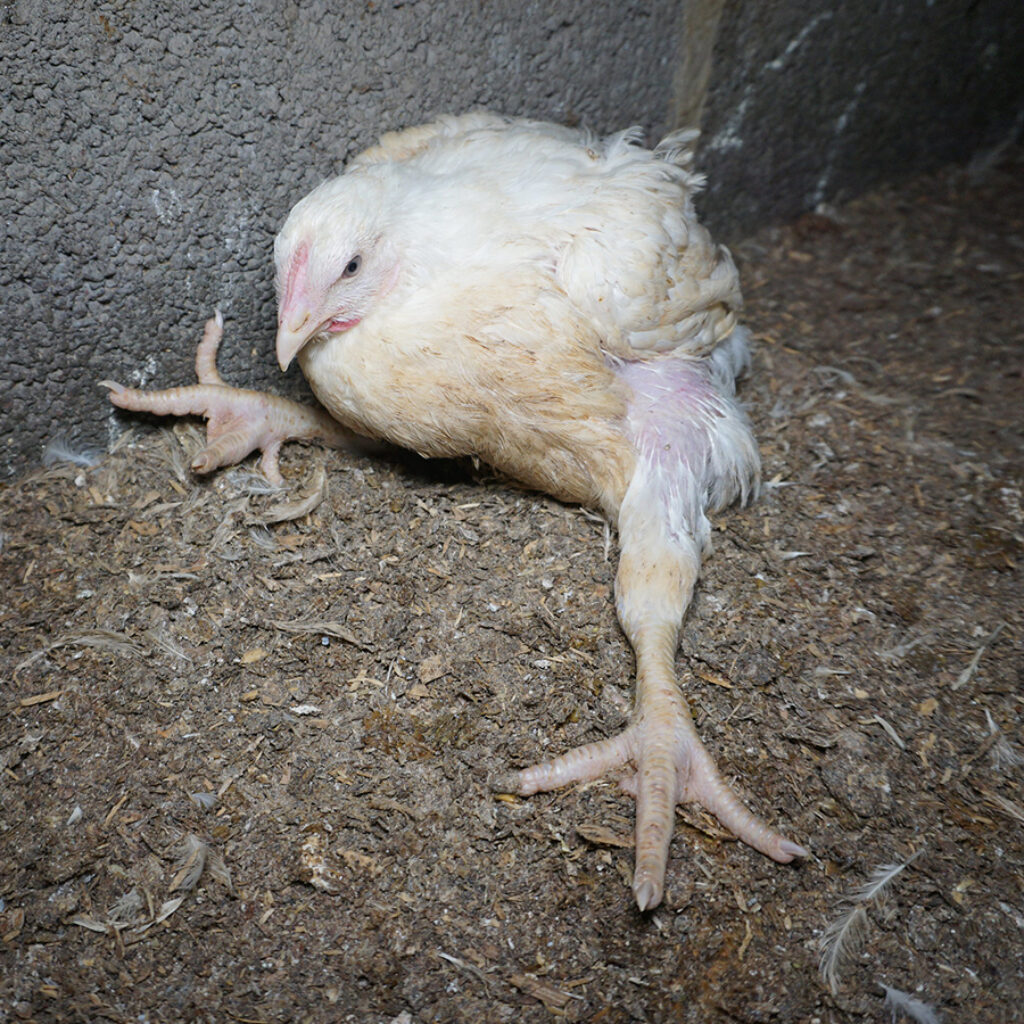
Overcrowded cages
Across the UK, millions of farmed animals are kept in cages, unable to express their natural behaviours.
Despite a ban on battery cages in 2012, so-called enriched colony cages are still legal in the UK. These are cages that hold up to 90 birds, who each have around as much space as an A4 piece of paper to stand on. Around a quarter of hens used for eggs in the UK are currently crammed into these cages and forced to endure a life of misery.
Animals kept in cages suffer great psychological and physical distress as they are forced to live in filthy conditions, with very little room to move. In these overcrowded spaces, hens are unable to develop social hierarchies or escape bullying behaviour and are often crushed or trampled by others in the same cage.
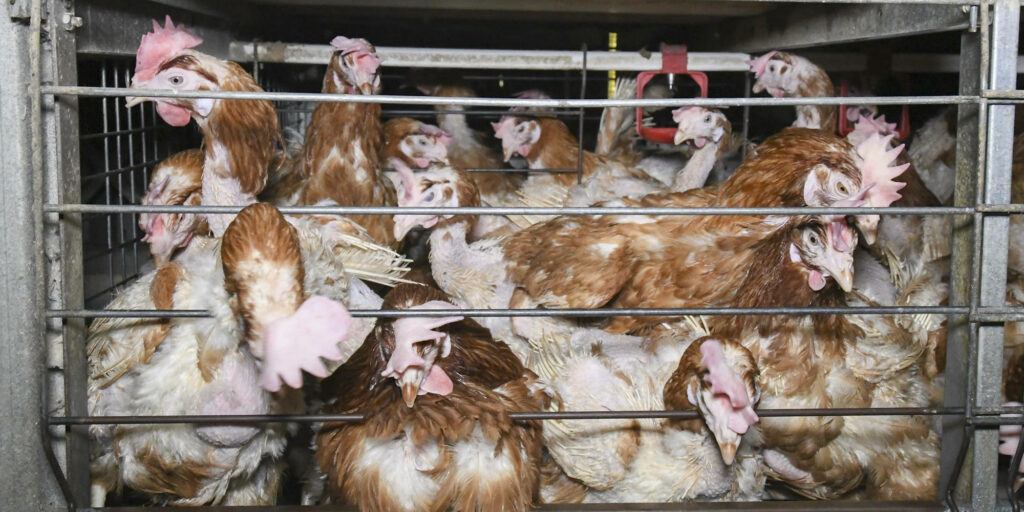
The slaughter process: gas stunning, electric waterbaths, and the slaughter of pregnant cows
More than a billion farmed animals in Britain are killed each year in slaughterhouses. This includes over 10 million pigs, and one billion chickens raised for their flesh. Other animals killed for human consumption include turkeys, ducks, fish, cows, sheep and goats.
The majority of farmed animals killed in slaughterhouses are young, many are just babies. Most piglets are slaughtered between four to seven months old; chickens raised for their meat are typically killed at about five weeks; and many male calves in dairy farms are slaughtered shortly after birth. Around 150,000 pregnant cows were reported to be slaughtered while pregnant annually in the UK, resulting in the death of their unborn babies.
The process itself is far from compassionate and resembles a production line of objects rather than living, feeling beings.
The majority of cows in the UK are stunned with a captive-bolt pistol. Once stunned, they roll out of the pen, are shackled by one leg, lifted onto an overhead conveyor and moved to the ‘bleed area’. Here their throats are cut and they are left to bleed out. Tragically, stunning can be ineffective and some cows have their throats cut while still conscious.
Pigs are stunned using an electric current or a high concentration of carbon dioxide gas. The latter method involves the pigs being lowered in groups into a chamber containing a minimum concentration of 70% carbon dioxide in air, where they are left until they die. While in these gas chambers pigs desperately gasp for breath and try to escape. Once dead, they are shackled by one leg, lifted and bled out.
Chickens are slaughtered using electrical waterbaths or gas. For an electrical waterbath stunning, chickens are hung by both legs onto a moving shackle line, which brings them to the water bath, where their heads swing into the electrified water. This process is extremely stressful and painful for chickens and is used to either stun or stun and kill them. They are then bled at the neck after they exit the water bath. Many birds lift their heads to avoid the electrified water and are therefore slaughtered while still conscious.
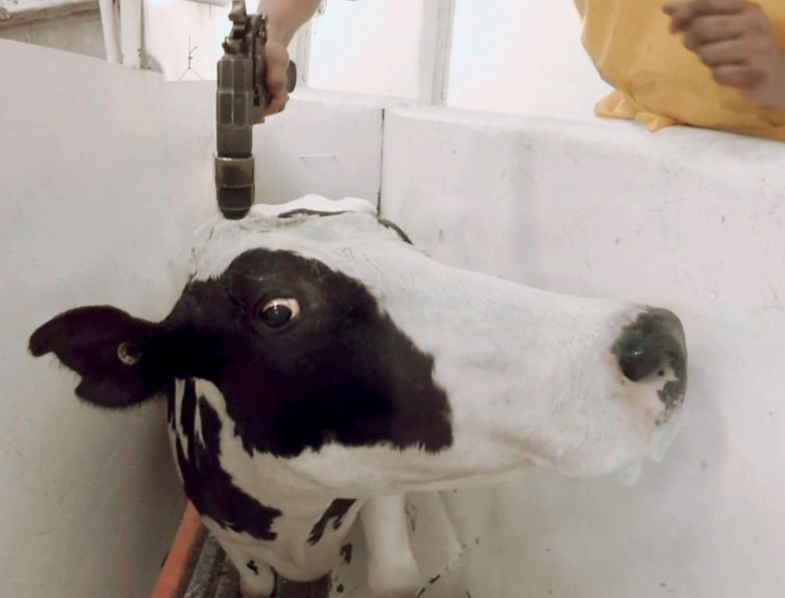
As several Animal Equality investigations have revealed – stunning is not always effective at the time of slaughter and many animals are killed while still conscious.
Fish are killed using different methods, among which are asphyxiation out of water, exposure to carbon dioxide, exposure to very low temperatures on an ice bed and bleeding without stunning. These procedures take several minutes to induce insensibility and are extremely cruel.
Electrical and percussive stunning methods for fish are now becoming more common. Current electrical systems include water-bath stunning systems, which passes fish through electrified water to stun them.
Sadly, as our investigation inside the Scottish Salmon Company revealed, there is a lack of detailed provisions for fish at time of slaughter, which results in prolonged suffering during the time it takes them to die.
Animals killed right after birth
Animal agriculture is driven by profit and therefore anyone considered worthless by the industry is discarded.
This is the case for 40-45 male chicks in the UK egg industry, who are gassed immediately after birth as they are unable to produce eggs.
They are also considered worthless by the meat industry, because they are unable to grow as fast as the industry requires to be profitable.
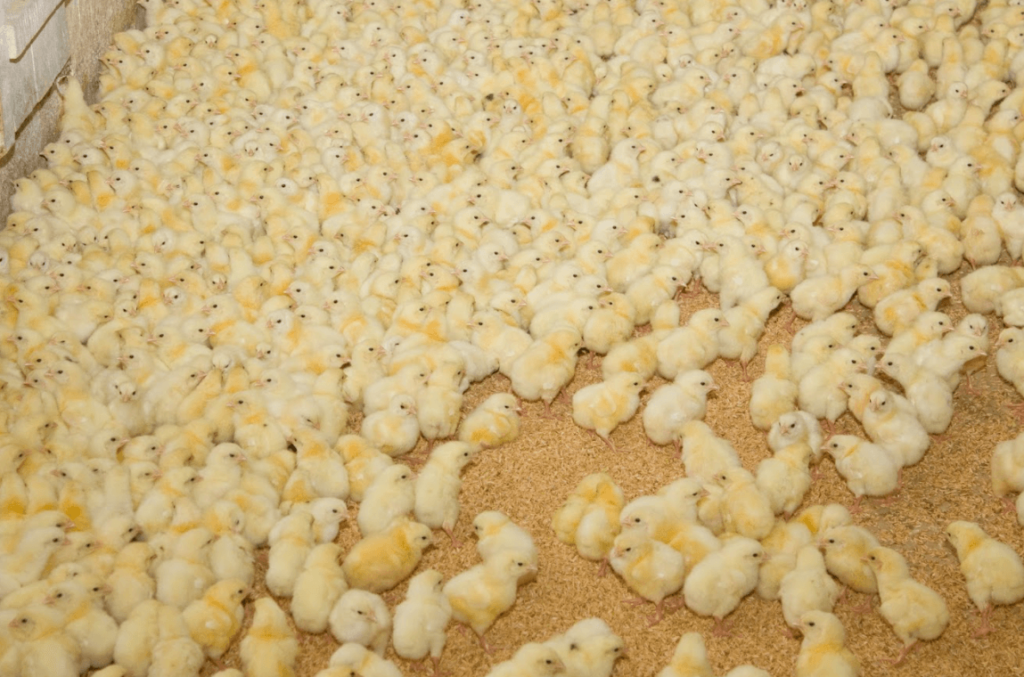
The same tragic fate applies to many male calves born in the dairy industry, who – unable to produce milk – are often slaughtered shortly after birth. Around 60,000 male calves are killed on-farm every year in the UK, which is around 15% of the bull calves born on dairy farms.
We can all make a difference for animals by leaving them off our plate. Every time we choose a plant-based alternative instead, we are sparing an animal from a lifetime of suffering.
Our investigative work opens a window into factory farms, exposing the atrocities and cruelty these innocent animals are subject to every day. It also reveals how too often the laws in place to protect animals are not respected.
This is why our investigations are extremely important, as they provide us with the evidence we need to convince governments to take action in defence of farmed animals.
There are millions of animals going through this right now and you have the power to stand up for them and make it stop. Support our exposés today, make a monthly donation.
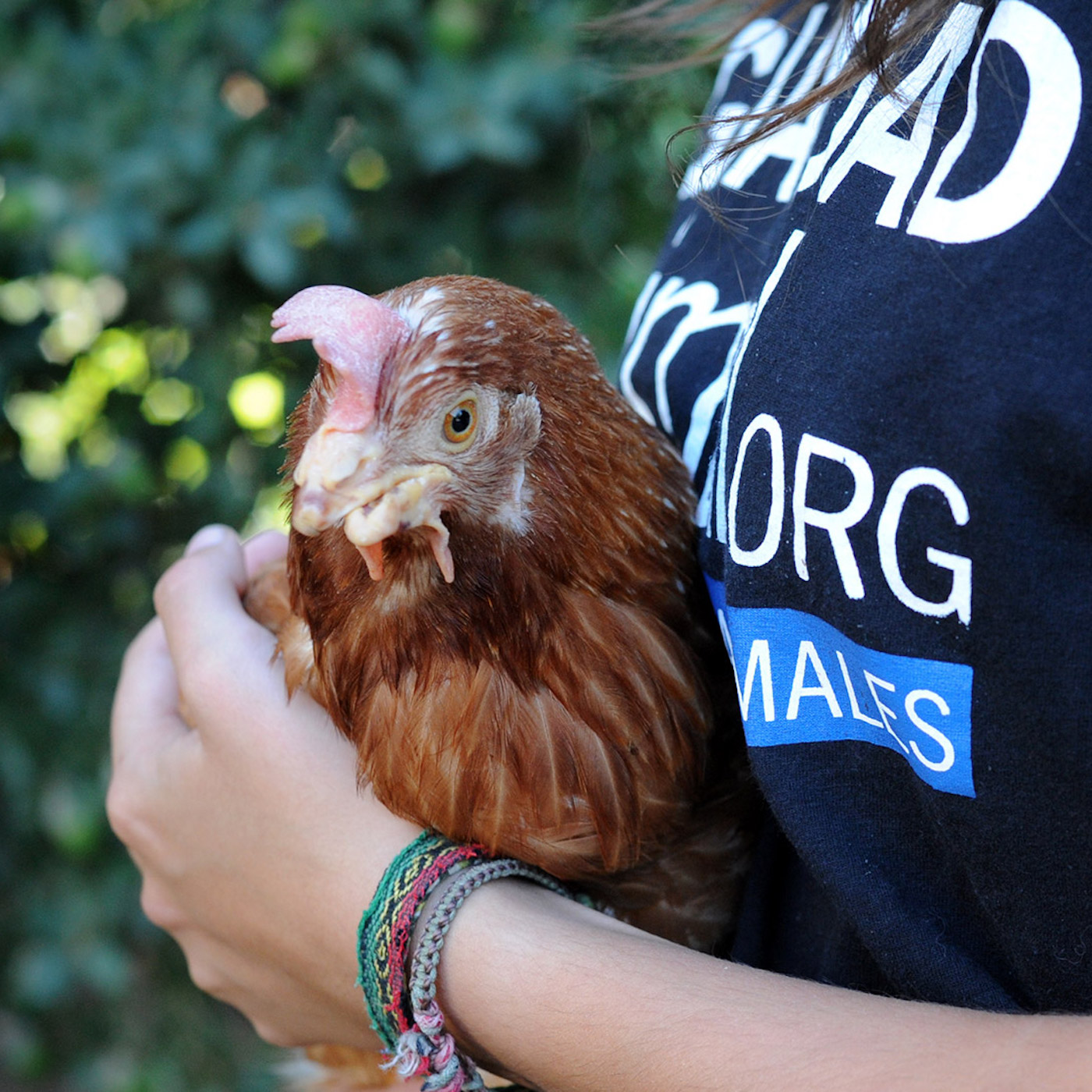
save animals, eat plant based
As a consumer, you hold the power to protect animals from the meat industry. Every plant-based meal saves animals from a life of misery in factory farms and slaughterhouses.
Most Popular
